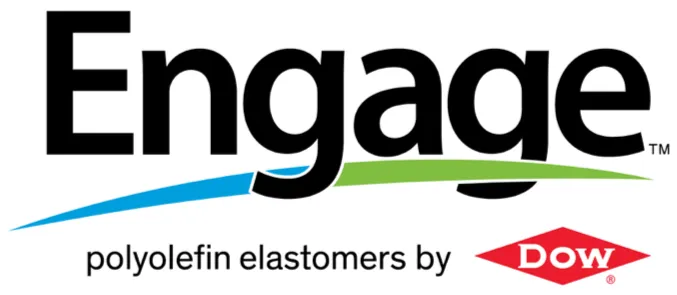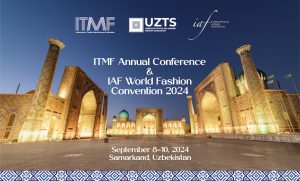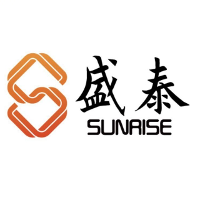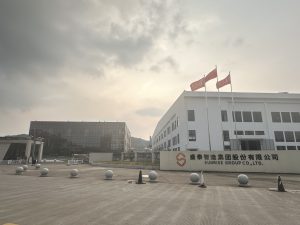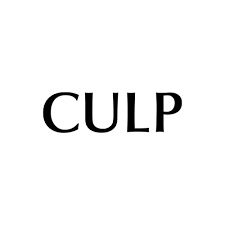 HIGH POINT, N.C. — September 4, 2024 — Culp Inc. (together with its consolidated subsidiaries, CULP) today reported financial and operating results for the first quarter ended July 28, 2024.
HIGH POINT, N.C. — September 4, 2024 — Culp Inc. (together with its consolidated subsidiaries, CULP) today reported financial and operating results for the first quarter ended July 28, 2024.
Fiscal 2025 First Quarter Financial Highlights
- Consolidated net sales of $56.5 million
– up 14.2 percent compared sequentially to last quarter
– sequentially, upholstery fabrics segment sales up 19.7 percent and inventory down 4.6 percent, mattress fabrics segment sales up 9.0 percent and inventory down 8.6 percent
- Year-over-year and sequential operating improvement in upholstery fabrics segment
– segment operating income of $1.7 million, up 28.9 percent year-over-year and 75.6 percent sequentially
– segment operating margin of 6.0 percent for the quarter
- GAAP consolidated loss from operations of $(6.9) million (includes $2.7 million in restructuring expense and related charges)
– Non-GAAP loss from operations of $(4.1) million (see reconciliation table on page 12)
– Operating performance for the quarter affected by manufacturing inefficiencies primarily related to the significant restructuring activity underway in the mattress fabrics segment
- $13.5 million in cash, $4.0 million in outstanding borrowings used to fund worldwide working capital and restructuring initiatives
– Stable net cash position of $9.5 million (see reconciliation table on page 8), with only $560,000 use of cash since end of fiscal 2024 despite significant restructuring activity
Financial Outlook
- Due to the significant restructuring activity underway, the company is only providing limited financial guidance at this time.
– Consolidated net sales for second quarter expected to be flat sequentially
– As a result of the restructuring initiatives, currently expect to return to near break-even adjusted EBITDA (excluding restructuring and related charges) in the second quarter of fiscal 2025, and to return to positive consolidated adjusted operating income (excluding restructuring and related charges) in the third quarter of fiscal 2025.
- The company’s expectations are based on information available at the time of this press release and reflect certain assumptions by management regarding the company’s business and trends and the projected impact of restructuring actions and ongoing external headwinds.
Iv Culp, president and CEO of Culp Inc., said, “Our sales results for the first quarter reflected strong sequential improvement as compared to the fourth quarter of last fiscal year, with mattress fabrics sales up 9.0 percent and upholstery fabrics sales up 19.7 percent. While we continue to experience challenged macro industry conditions, our sequential sales growth was better than expected, and year-over-year consolidated sales were flat despite the overall industry weakness.
“Our upholstery fabrics segment also delivered a significant improvement in operating income, both year-over-year and sequentially, with 6.0 percent operating margins for the quarter. The strategic actions we have taken in this segment are working, as we have reduced our cost structure while maintaining and enhancing our ability to grow sales. However, as expected, operating performance for our mattress fabrics segment was pressured by manufacturing inefficiencies primarily related to our significant restructuring activity. While this negatively and disproportionately affected operating performance for the quarter, our use of cash was minimal, with our net cash position only $560,000 lower as compared to the end of fiscal 2024. We are pleased that both segments reduced inventory from the end of fiscal 2024 despite the strong sequential increase in sales.
“We are also encouraged by the progress of our restructuring initiatives. While mattress fabrics operating results are being pressured by these actions in the first half of the fiscal year, especially in the first quarter, we believe we are on schedule to deliver our targeted improvement outcomes, including a return to near break-even adjusted EBITDA in the second quarter and a return to positive consolidated adjusted operating income in the third quarter. The restructuring is a significant undertaking that impacts people, plant consolidations, equipment relocation, and process improvements, but with it, we are successfully lowering our cost structure despite weak demand. We are extremely thankful for our dedicated employees as they execute our plan to return to profitable operating results post-restructuring.
“Looking ahead, we are encouraged by (1) our solid and improving market positions in both businesses; (2) our consistently profitable upholstery fabrics business; (3) expected further improvement in our hospitality fabrics and Read Window businesses; and (4) the steady progress we are making to restructure our mattress fabrics business. We anticipate industry conditions may remain pressured during fiscal 2025, although we also believe there is some stabilizing of industry trends. We expect the strategic actions we are taking will position us for a return to profitability at current demand levels and further growth opportunities as market conditions improve,” added Culp.
Restructuring Update
The restructuring plan announced on May 1, 2024, primarily focused on the company’s mattress fabrics segment, is progressing as planned. The consolidation of the company’s sewn mattress cover operation in Haiti was completed during the first quarter, and the consolidation of the company’s North American mattress fabrics operation is well underway (including the phased wind-down and closure of its manufacturing facility in Canada and move of certain knitting and finishing equipment to its facility in North Carolina).
The company still expects to generate $10.0 million to $11.0 million in annualized savings and operating improvements after the restructuring initiatives are fully implemented by the end of the calendar year, with most of the restructuring benefit realized during the second half of fiscal 2025.
In addition, based on restructuring activities that have been completed along with updated estimates on those that remain in process, the company now expects to incur total restructuring and restructuring-related costs and charges of $5.1 million in fiscal 2025, of which $3.0 million is now expected to be cash expenditures. The company expects to fund approximately $2.0 million of the cash costs with proceeds from the sale of excess manufacturing equipment and proceeds from a building lease termination in Haiti.
These restructuring and restructuring-related costs and charges exclude any gain on the sale of real estate, the amount and timing of which is currently unknown but which will ultimately reduce the amount of the restructuring charges incurred. The company is actively marketing and showing the real estate, and currently anticipates receiving approximately $9.0 to $10.0 million in cash proceeds (net of all taxes and commissions) from its eventual sale.
First Quarter Fiscal 2025 Results versus First Quarter Fiscal 2024 Results
- Net sales were $56.5 million, down 0.2 percent compared with the prior-year period, with mattress fabrics sales down 3.9 percent, and upholstery fabrics sales up 3.7 percent.
- Loss from operations was $(6.9) million (which included $2.7 million in restructuring expense and related charges during the period), compared with a loss from operations of $(3.1) million for the prior-year period (which included $517,000 in restructuring and related charges during the period).
- Adjusted loss from operations was $(4.1) million, compared with an adjusted loss from operations of $(2.6) million for the prior-year period. (See reconciliation table on page 12). Operating performance compared to the first quarter of fiscal 2024 was negatively affected by manufacturing inefficiencies primarily related to significant restructuring activity underway in the mattress fabrics segment.
- Net loss was $(7.3) million, or $(0.58) per diluted share, compared with a net loss of $(3.3) million, or $(0.27) per diluted share, for the prior-year period. The effective tax rate for the first quarter was negative (3.4) percent, reflecting the company’s mix of taxable income between its U.S. and foreign jurisdictions during the period.
Business Segment Highlights
Mattress Fabrics Segment (“CHF”)
- Sales for this segment were $28.1 million for the first quarter, down 3.9 percent compared with sales of $29.2 million in the first quarter of fiscal 2024. Sequentially, sales were up 9.0 percent compared with sales of $25.8 million for the fourth quarter of fiscal 2024.
- While year-over-year sales were affected by weakness in the domestic mattress industry, the sequential improvement in sales was driven by higher order levels, which CHF believes are indicative of its product innovation and improving market position.
- Operating loss was $(3.5) million for the first quarter, compared to an operating loss of $(1.4) million in the prior-year period. Operating performance for the quarter was pressured by lower year-over-year sales volume and manufacturing inefficiencies, including inefficiencies related to the significant restructuring initiatives to wind-down CHF’s Canadian operation and move certain knitting and finishing equipment to Stokesdale, North Carolina.
Upholstery Fabrics Segment (“CUF”)
- Sales for this segment were $28.5 million for the first quarter, up 3.7 percent compared with sales of $27.4 million in the first quarter of fiscal 2024. Sequentially, sales were up 19.7 percent compared with sales of $23.8 million for the fourth quarter of fiscal 2024.
- Sales for CUF’s residential fabric business and hospitality/contract fabric business (including Read Window) were both higher than the prior-year period and higher sequentially, driven by stronger demand (and, with respect to the sequential improvement in residential fabric, partially affected by the timing of Chinese New Year, which pressured sales during the fourth quarter of fiscal 2024).
- Sales from CUF’s hospitality/contract business accounted for approximately 33 percent of CUF’s total sales during the first quarter.
- Operating income was $1.7 million for the first quarter, compared with operating income of $1.3 million in the first quarter of fiscal 2024. Operating margin for the first quarter of fiscal 2025 was 6.0 percent, compared with 4.8 percent for the first quarter of fiscal 2024. Operating performance for the first quarter of fiscal 2025, as compared to the prior-year period, was positively affected by higher sales, lower fixed costs, and lower SG&A, offset somewhat by higher freight costs.
Balance Sheet, Cash Flow, and Liquidity
- As of July 28, 2024, the company reported $13.5 million in total cash and $4.0 million in outstanding debt under the company’s China credit facility.
- Cash flow from operations and free cash flow were negative $(206,000) and negative $(550,000), respectively, for the first three months of fiscal 2025, compared with cash flow from operations and free cash flow of negative $(4.4) million and negative $(4.2) million, respectively for the first three months of fiscal 2024. (See reconciliation table on page 10 of this press release.) The company’s cash flow from operations and free cash flow during the first three months of fiscal 2024 were affected by operating losses, partially offset by lower working capital (mainly from lower inventory balances) and planned strategic investments in capital expenditures mostly related to the mattress fabrics segment. Both segments continue to do an effective job managing inventory during very challenging business conditions.
- Capital expenditures for the first three months of fiscal 2025 were $501,000. The company continues to manage capital investments, focusing on projects that will increase efficiencies and improve quality, especially for the mattress fabrics segment.
- As of July 28, 2024, the company had approximately $32.7 million in liquidity consisting of $13.5 million in cash and $19.2 million in borrowing availability under the company’s domestic credit facility. The company also had $4.0 million in borrowings outstanding under its China credit facility as of July 28, 2024.
- As reflected in the borrowings outstanding, the company intends to utilize some borrowings under its domestic and/or foreign credit facilities during fiscal 2025 in connection with its restructuring activities and to fund worldwide working capital to grow the business. Importantly, the company still expects to maintain a positive net cash position and to fund approximately $2.0 million of the cash costs associated with the restructuring from the eventual sale of excess equipment and proceeds from a building lease termination in Haiti.
- Assuming the completion of all restructuring actions and the sale of associated real estate by the end of fiscal 2025, the company currently projects its cash as of the end of fiscal 2025 to be higher than its $10.0 million in cash as of the end of fiscal 2024.
Posted: September 5, 2024
Source: CULP, Inc.
 LEEDS, England — September 4, 2024 — Leeds-based Fibre Extrusion Technology Ltd. (FET) will be exhibiting for the first time at COMPAMED 2024 in Düsseldorf to reflect the company’s increasing profile in the medical sector. COMPAMED is an international trade fair for the medical technology supplier sector, showcasing a comprehensive range of high-quality medical technology components, services and production equipment for the medical industry
LEEDS, England — September 4, 2024 — Leeds-based Fibre Extrusion Technology Ltd. (FET) will be exhibiting for the first time at COMPAMED 2024 in Düsseldorf to reflect the company’s increasing profile in the medical sector. COMPAMED is an international trade fair for the medical technology supplier sector, showcasing a comprehensive range of high-quality medical technology components, services and production equipment for the medical industry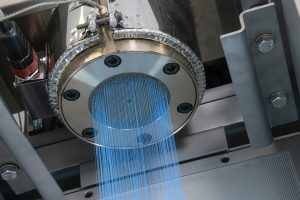 This show takes place in Düsseldorf, Germany, November 11-14, 2024, and FET can be found in Hall 8b Stand N36. FET are experts in medical fiber technology and innovations, designing and delivering high performance equipment for a range of precursor medical products. This includes turnkey solutions for nonwoven medical devices, wound care and dressings and synthetic absorbable sutures.
This show takes place in Düsseldorf, Germany, November 11-14, 2024, and FET can be found in Hall 8b Stand N36. FET are experts in medical fiber technology and innovations, designing and delivering high performance equipment for a range of precursor medical products. This includes turnkey solutions for nonwoven medical devices, wound care and dressings and synthetic absorbable sutures.

